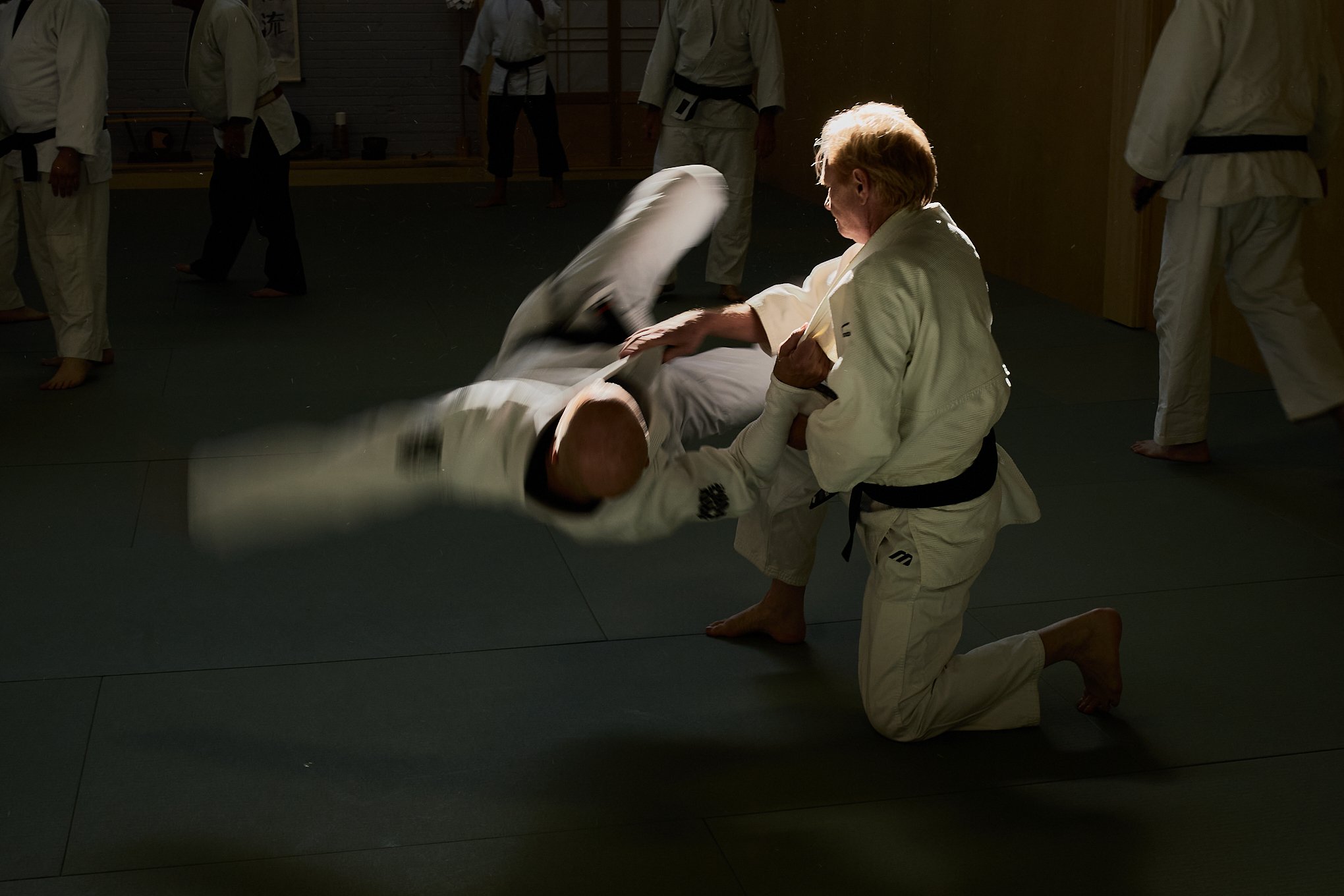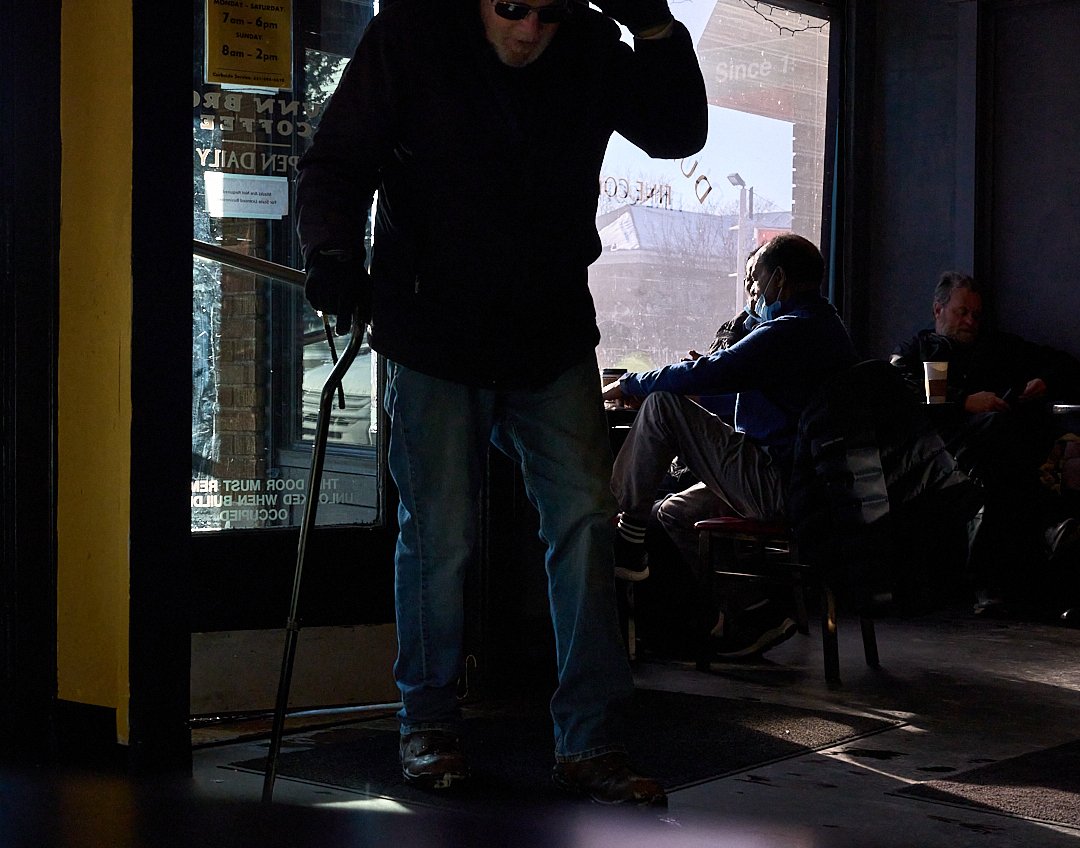A clean, well-lighted place
Prof. Lamar Fisher looks on as Dan Browning kicks a heavy bag, circa 1977, at the old Nibukikan dojo. Photographer unknown.
When I was a young man I wandered into a martial arts dojo called Nibukikan in Chico, California. I had been taking a “judo” class at the local state university and wanted more. I remember filling out the paperwork to join the dojo and the sensei, Prof. Lamar Fisher, looking me over skeptically.
“Why do you want to take jujutsu?” he asked.
”Self-defense,” I answered. I could see he was hesitating.
“And personal development,” I added.
He mulled over his response.
”Well, I guess we’ll give you a try,” he said finally.
Prof. Tom Hill throwing Bob Kaufer (my lawyer) at a recent clinic in St. Paul. Photo by Dan Browning/Danzante Photography LLC.
Back then, to accept a student for martial arts training was not just a business proposition. You understood that it meant accepting the karma of your student. If the student turned out to be a bad apple, it would have consequences for your karmic ledger.
At the time, I was a Religious Studies major focusing on Zen Buddhism and the philosophy of religion. My plan was to go on to a doctorate program to teach comparative religions, or possibly to law school. I also wanted to write novels, along the lines of Henry Miller and Ernest Hemingway. In other words, I had no real idea about what I wanted to do. I only knew that I was seeking a meaningful life. And if life held no meaning other than living, then I wanted to experience it fully. I eventually landed in graduate school at the University of Oregon in Eugene, where I studied journalism and took elective courses in the English literature program. One course was on the works of Hemingway as an existentialist. I remember in particular his short story titled, A Clean, Well-Lighted Place.
Everything you do in your life affects its trajectory. That story returned to me other day as I enjoyed a cup of coffee at Dunn Bros. coffee shop on Grand Avenue in St. Paul, Minnesota. It draws a steady and regular clientele. And the when the sun strikes its dusty windows it guilds the characters sitting inside. I was reading The Real Deal: Field Notes from the Life of a Working Photographer, the latest autobiographical work by Joe McNally. I had my camera with me. As I a took a break to sip my coffee, I noticed the light wrapping around some men, likely from East Africa, speaking energetically by the window. I snapped a few frames. An older gentleman soon entered the cafe, walking unsteadily with a cane. He sat across from me and set about reading a John Sanford novel, Winter Prey. I remarked that it was the first book I read after moving to St. Paul from St. Louis in 1994. We talked about Sanford, the pen name for John Camp, a former reporter at the St. Paul Pioneer Press who went on to an extraordinarily successful career as a novelist. The man with the cane lamented the depleted state of the once-fine newspaper, which he had delivered as a boy and where I had worked for five years. It was a brief but nourishing conversation, and we each returned to our respective reading.
A John Sanford fan, identity unknown, entering Dunn Bros. coffee shop.
If you made it this far you might be wondering what this column has to do with photography. I would say, everything. When you hire a photographer to make your portrait, you’re buying into their vision as well as their technical skills. Look them up and down, like my old jujutsu instructor. Do you want this person in your karmic journey? If not, move on. The light fades fast.
Hiring a professional photographer is an investment. Have a conversation in a Clean, Well-Lighted Place. Get to know the person you’ve hired to expose you.


